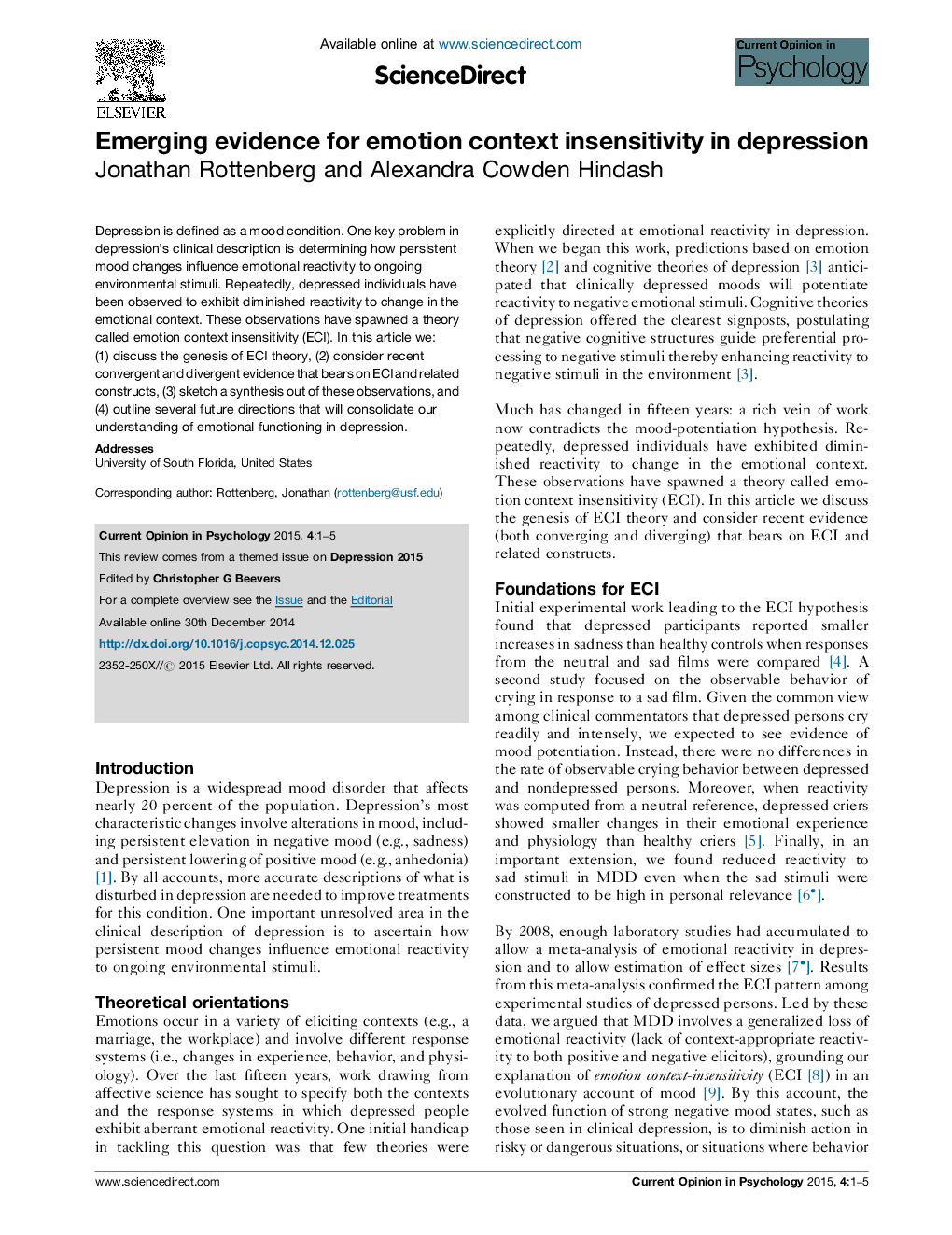| Article ID | Journal | Published Year | Pages | File Type |
|---|---|---|---|---|
| 879494 | Current Opinion in Psychology | 2015 | 5 Pages |
•Emotion context insensitivity explains reduced emotional reactivity in depression.•Several different depression-related phenomena converge with ECI.•Observations in ecological momentary assessment studies challenge ECI.•ECI is the most apparent with normative emotional stimuli and at brief time scales.•Studies that collect lab and real life data within the same individuals are needed.
Depression is defined as a mood condition. One key problem in depression's clinical description is determining how persistent mood changes influence emotional reactivity to ongoing environmental stimuli. Repeatedly, depressed individuals have been observed to exhibit diminished reactivity to change in the emotional context. These observations have spawned a theory called emotion context insensitivity (ECI). In this article we: (1) discuss the genesis of ECI theory, (2) consider recent convergent and divergent evidence that bears on ECI and related constructs, (3) sketch a synthesis out of these observations, and (4) outline several future directions that will consolidate our understanding of emotional functioning in depression.
